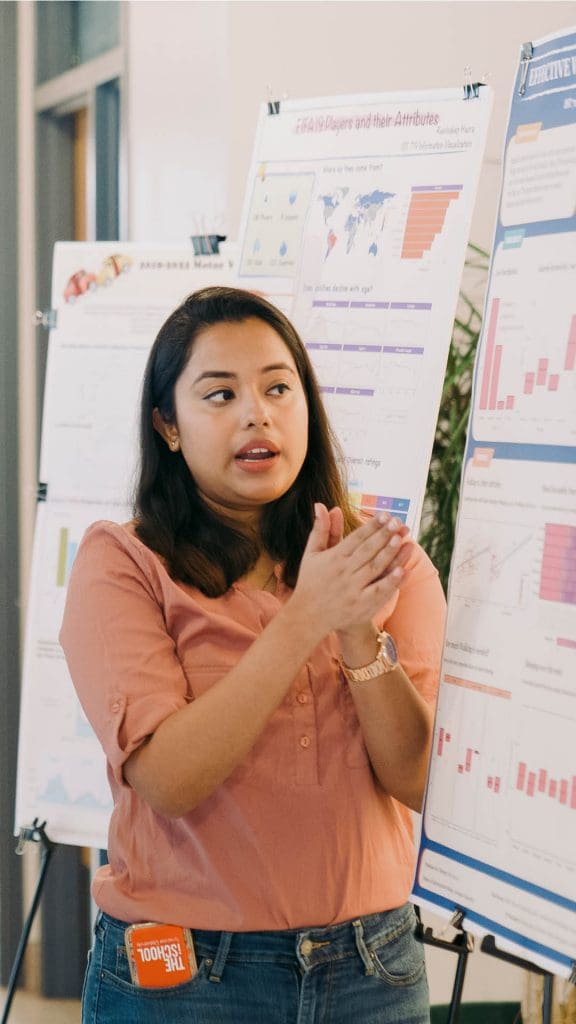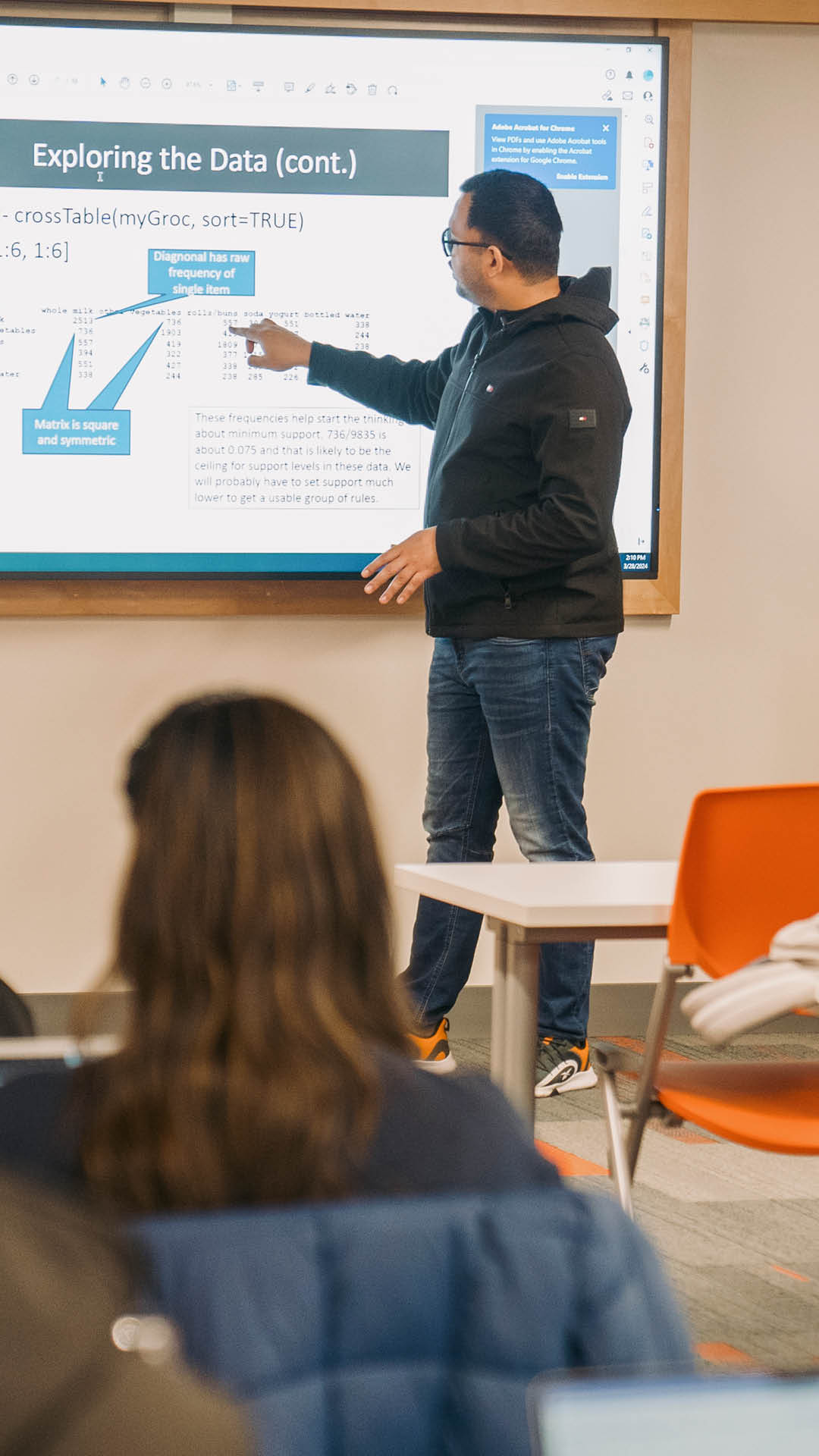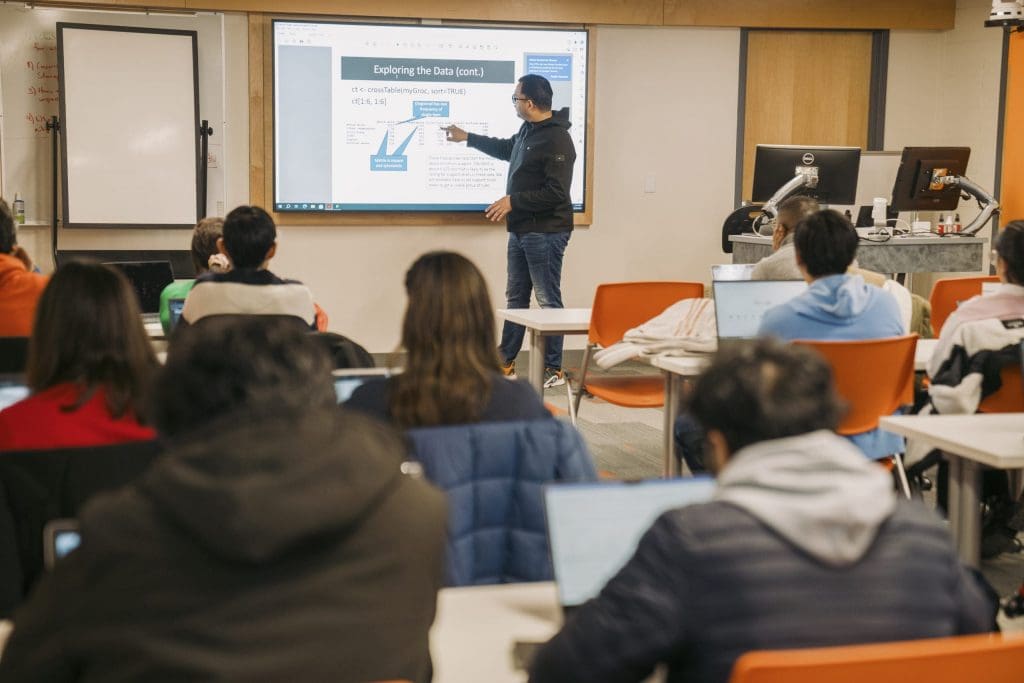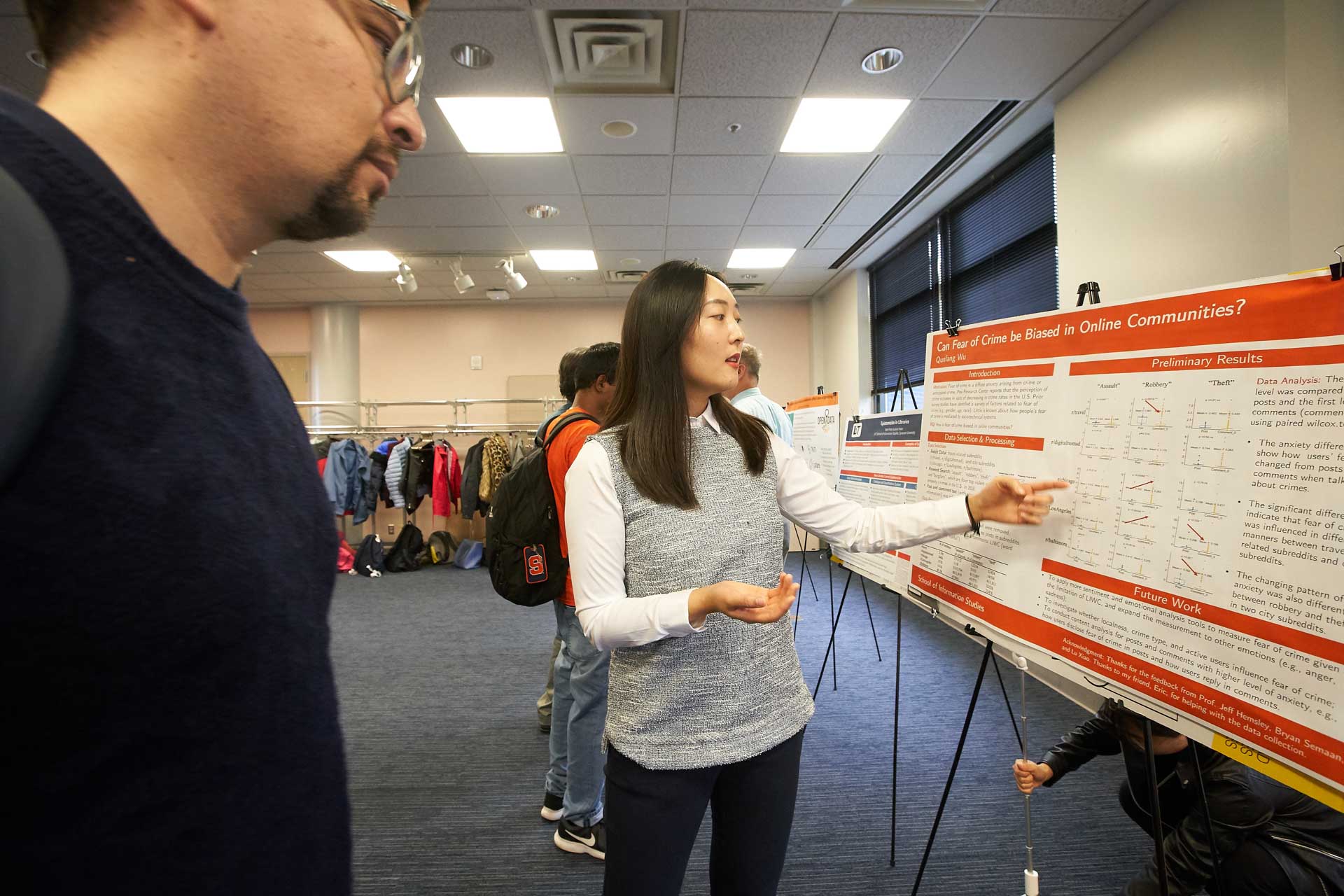A human-centered approach to information and digital technologies.
Join a community founded on the idea that information is a manageable resource with a distinctively human component. The Ph.D. in Information Science and Technology provides an innovative and multidisciplinary program where you’ll gain the research skills and perspective to be a leader in academia and the information industries.
- Join a Ph.D. program that focuses on the human-centered approach to information, blending digital technologies with human uses of information.
- Gain multidisciplinary research skills to lead in academia and the information industries, drawing from fields like sociology, psychology, policy, and communications.
- Work with faculty experts from diverse disciplines, including management, computing, and librarianship.
- Receive full funding as an admitted Ph.D. student, enabling you to focus entirely on your studies.
- Commit to 4-5 years of full-time, residential study to immerse yourself in advanced research and scholarship.
Quick Info
Next term starts Fall 2025, on campus
78 Total Credit Hours
Pursue Your Interests.
Our program combines a flexible curriculum based on your individual research interests, and focus areas that allow you to pursue your personal areas of interest. Through a series of guided research experiences with faculty combined with courses on methods, theories of digital technologies, and theories of information, you’ll explore how the interactions between people and information technology can shape the world around us.
Advance With Expertise.
Work closely with our esteemed faculty, join a research lab, and pursue investigation in your areas of expertise. Here, you’ll have the support of a close-knit group of professionals, and the resources of a major research university. You’ll gain mastery in your field, and the experience you need to take the next step in your career.
Join Our Ranks.
You embrace interdisciplinary nature of the information field, and invite alternative views and approaches to research. As a lifelong learner, you aspire to a career in academia or are otherwise committed to research. We invite you to apply to our program.
Syracuse University is accredited by
the Middle States Commission
on Higher Education Accreditation.









